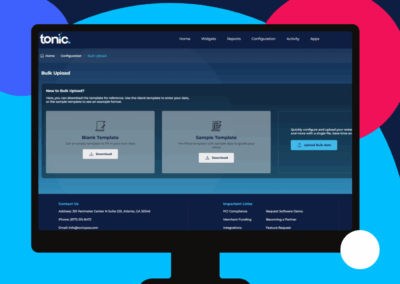Managing staff hours efficiently is critical for every restaurant, impacting everything from customer satisfaction to employee morale and profitability. Combining sophisticated scheduling tools with strategic management practices can dramatically enhance operational efficiency.
Effective Shift Management Practices
1. Cross-Training Employees: Cross-training is pivotal for its versatility and for building a robust team capable of handling various roles, enhancing both resilience and adaptability of operations. This strategy prepares staff for unexpected absences and fosters a deeper understanding among team members of different roles, leading to more empathetic teamwork and improved morale. As a result, your restaurant becomes more flexible and capable of adjusting quickly to daily operational demands.
2. Empowering Employees in Scheduling: Involving your team in the scheduling process acknowledges their importance to your operation, boosting morale and job satisfaction. By utilizing scheduling tools that allow staff to input their preferred shifts and availability, restaurants can ensure that schedules meet both business needs and employee preferences, creating a harmonious work environment. This empowerment helps reduce turnover rates, as employees feel their needs and time are respected, which can lead to a more dedicated and motivated staff.
3. Using Data for Decision Making: Leveraging historical data from POS systems like Tonic to forecast busy periods enables restaurants to optimize staff allocation efficiently. This data-driven approach ensures staffing levels correspond with customer demand, maintaining service quality without incurring unnecessary labor costs. For example, if weekend sales typically surge by 20%, scheduling more staff during these times can help manage the rush more effectively, enhancing customer experience and potentially increasing sales.
4. Maintaining Communication: Effective communication of shift schedules is essential to operations. Ensuring all staff members have easy access to their schedules, preferably through digital means that allow real-time updates, can significantly enhance operational reliability. Clear communication helps prevent misunderstandings and last-minute absences that could disrupt service. Consistently updated schedules help staff plan their lives around work commitments, improving their work-life balance.
5. Adjusting for Seasonality and Trends: Understanding and anticipating fluctuations in business volume due to seasonal changes or emerging trends is crucial for maintaining efficiency. Analyzing POS data can help identify patterns that inform better scheduling decisions. For instance, if a restaurant knows that tourist traffic increases in the summer months, they can schedule more staff in advance to handle the increased workload. This proactive scheduling improves service levels and helps manage staff expectations and preparations.
Technology Integration
Integrating scheduling software with POS systems can yield a wealth of benefits. For example, POS data can help refine forecasting models within scheduling tools like 7shifts, making them more accurate and reliable. Aligning staff presence with actual demand can lead to a 15-30% reduction in unnecessary labor costs. Seamless integration allows real-time sales and labor metrics tracking, providing managers with instant insights for better decision-making.
This connectivity ensures that schedules are based on historical data and continuously optimized to reflect current business conditions, enhancing efficiency and customer service. Integrating these systems can streamline payroll processes, reduce administrative burdens, and improve compliance with labor regulations, ultimately contributing to a more productive and profitable operation.
Regulations and Compliance
Navigating labor laws and regulations can be daunting, but with the right tools, it’s manageable and straightforward. Advanced scheduling tools are designed to ensure compliance effortlessly by automating critical processes.
These systems track hours worked, monitor overtime situations, and ensure adherence to break requirements, alerting managers proactively to potential compliance issues. This helps avoid costly legal penalties and provides peace of mind by safeguarding against labor disputes and enhancing operational transparency. By integrating these tools, businesses can maintain a reliable compliance record, making audits smooth and stress-free.
Conclusion
Effective shift management in restaurants is not just about filling in a calendar; it’s about strategic planning and execution that leverages technology and human resources. Integrating tools like 7shifts with thoughtful management practices can transform restaurants’ operations, leading to increased efficiency, lower costs, and happier employees. As the industry evolves, adopting these technologies and practices will be crucial for staying competitive and thriving in the dynamic food service environment.
Ready to switch to a POS system with advanced scheduling technology? Request a demo of Tonic POS to see firsthand how modern integrations can enhance your business.






